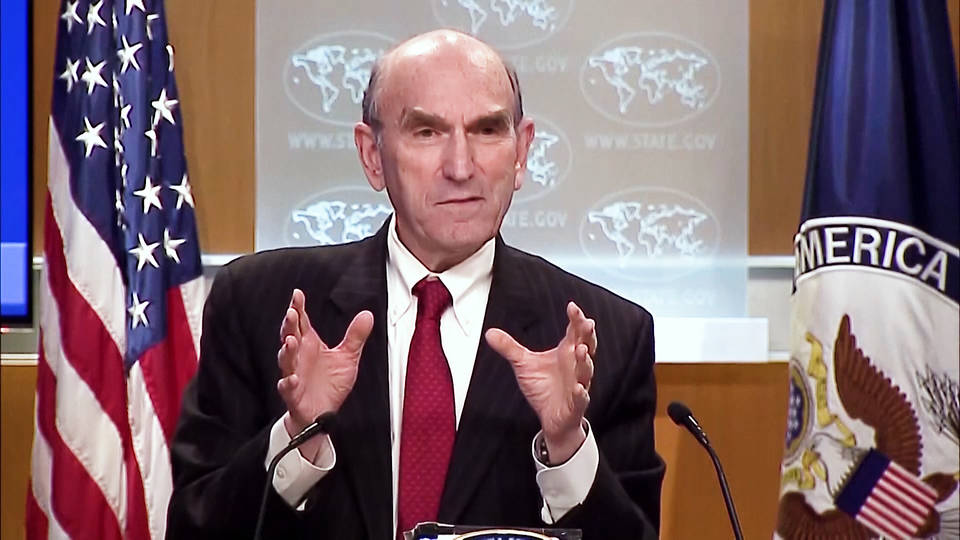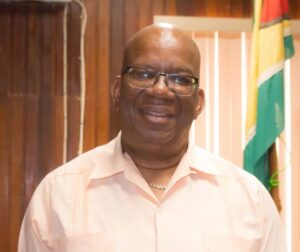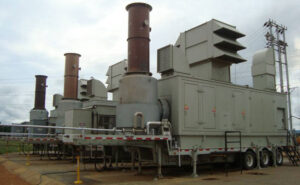
(CNN, 31.Jul.2020) — Two American oil executives held in an overcrowded Venezuelan prison for almost three years have been placed in house arrest, a sign that the embattled government of Nicolas Maduro may be easing its stance toward the detainees.
Gustavo Cárdenas and Jorge Toledo were released to house arrest on Thursday evening, days after a humanitarian visit to Caracas by former New Mexico Gov. Bill Richardson and a team of nongovernment negotiators.
Richardson said in a statement that it is “a positive and important first step” and thanked Maduro for the gesture, while also calling for the release of all six oil executives detained. It’s not the first time the men have been placed in house arrest, but negotiators said they hope that this time, the release from prison is ultimately a precursor to their release from Venezuela.
US Special Representative for Venezuela Elliott Abrams reacted to the news in a statement Friday, saying, “We have seen the reports that Gustavo Cardenas and Jorge Toledo, two of the so-called CITGO 6, have been moved from prison to house arrest in Caracas. This is a positive step that we are glad to see, and of course we hope others follow. ” Toledo’s stepson Carlos Añez told CNN on Friday that his stepdad had made it to his new accommodation late last night.
“This was a welcome surprise and I can only thank the Venezuelan authorities for having taken this step and Gov. Bill Richardson for facilitating the effort. I hope that soon all six men will be back home, in the US, safe and sound with their families,” he said.
Detained without trial
Their move to house arrest follows remarks last month by President Donald Trump that he would consider meeting with Maduro, during which time he played down his earlier decision to recognize opposition leader Juan Guaidó as Venezuela’s legitimate leader.
Days later, the President walked back those comments, tweeting, “My Admin has always stood on the side of freedom and liberty and against the oppressive Maduro regime! I would only meet with Maduro to discuss one thing: a peaceful exit from power!”
The “Citgo 6,” as they are known — Cardenas, Toledo, Tomeu Vadell, Alirio Jose Zambrano, Jose Luis Zambrano and Jose Angel Pereira — have been detained in Venezuela without trial since November 2017, when they received a call from the head of Venezuelan oil giant PDVSA summoning them to Caracas for a last minute budget meeting.
When they arrived, armed and masked security agents arrested them on embezzlement charges stemming from a never-executed proposal to refinance some $4 billion in Citgo bonds by offering a 50% stake in the company as collateral. Maduro himself accused them of “treason,” though they have not been charged with that crime.
Long before the global pandemic put pressure on financial systems across the world, Venezuela was facing severe shortages of food, medicine and fuel as it grappled with inflation that most economists blame on years of mismanagement and corruption. More than 3.5 million Venezuelans have fled their homes to escape the country’s imploding economy.
The families of the “Citgo 6” — five of them American citizens and all with deep roots in Texas and Louisiana — complain the men are being held in inhumane conditions, sharing overcrowded basement cells in a military counterintelligence prison and suffering severe weight loss in a country plagued by food shortages.
The case has largely slipped from view as Venezuela has descended further into turmoil and relations between it and the US have been torn apart by the Trump administration’s strong backing for opposition leader Guaidó in his battle to oust Maduro.
US Special Presidential Envoy for Hostage Affairs Roger Carstens revealed earlier this year that two of the men had “flu symptoms on top of other health issues” while in Venezuelan detention. Carlos Añez told CNN that his stepfather, Toledo, was one of the men experiencing flu symptoms. He described him as “sick and in a lot of pain” and “still not allowed to get proper medical treatment.”
Scant support
In January last year, the US imposed sanctions on Venezuelan oil giant PDVSA, in what the Treasury Department said was an effort to ensure oil revenues flow to Guaidó and not the Maduro government. A month later, Guaidó named a new board to manage Citgo, the eighth largest refiner in the US and which until the takeover had been a PDVSA subsidiary.
Despite the change in Citgo leadership, families of the jailed men have complained they are still being left to fend for themselves, with scant support from the company, Guaidó or the US government.
Richardson and his team have been working to secure the release of the men for several months at the request of the families.
In a separate case, two former Green Berets were among the over 100 people arrested earlier this year in Venezuela in connection with a plan to seize the presidential palace, capture Maduro and bring him back to the United States. The status of their detention wasn’t immediately clear.
The White House and Department of Defense have denied US involvement in the planned raid.
__________
By Vivian Salama. CNN’s Jennifer Hansler contributed to this story

